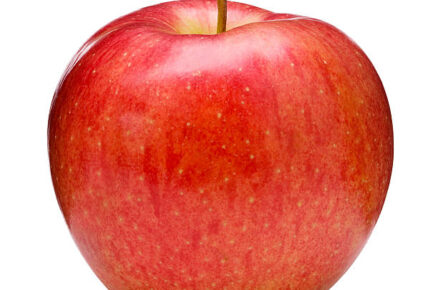Tomatoes are high in antioxidants such as Lycopene and vitamin C. They may aid in the fight against free radicals, which can harm your skin cells. They may also reduce your chances of sun damage. Yet, sunscreen remains one of the greatest ways to protect your pores and skin from the sun’s harmful rays. Fildena 200 and Malegra 200, on the other hand, have lately been researched for their ability to promote weight loss in patients who are overweight or obese.
C vitamin
Tomatoes are high in vitamin C, essential for your body’s ability to produce collagen. This nutritional shortage is linked to pores and skin wrinkles, sagging, and blemishes. Tomatoes are also high in vitamins. Okay, which helps to prevent blood clotting and promotes bone health.
Tomatoes may protect the eyes from eye disease, and research indicates that eating a tomato daily may help reduce the risk of age-related macular degeneration. They also include lutein and zeaxanthin, which help protect the retina from UV damage.
Another perk of tomatoes is that they lower blood pressure, which can aid in preventing cardiovascular disease. They’re also high in potassium, which is necessary for a healthy heart and may reduce the risk of diabetes.
Eating foods high in Lycopene, such as tomatoes, has been demonstrated to help reduce the risk of cancer, particularly prostate cancer. A lycopene-rich diet can help slow cancer cell growth by interfering with how these cells connect to circulation.
Furthermore, the Lycopene in tomatoes may shield your skin from solar harm and the signs of aging. One study revealed that people who ate a diet high in Lycopene, including tomato products, had 40% fewer sunburns than those who didn’t.
Aside from these benefits, tomatoes are a good source of fiber and potassium. Tomato fiber aids digestion and prevents blood sugar spikes, whereas potassium can prevent the development of hypertension and coronary heart disease.
They’re also high in vitamin B, necessary for tissue growth and cell performance. That is why canned tomatoes are a smart way to increase your lycopene intake.
Lycopene
Tomatoes are high in the antioxidant Lycopene, which protects our cells from hazardous free radicals that can harm our health and taste. Antioxidants aid in the reduction of stress, inflammation, and the signs of aging, such as wrinkles and fine lines.
It also helps to prevent and reverse the effects of sun damage and aging. According to medical studies, regular lycopene consumption can improve your skin’s health and appearance by reducing the impact of UV radiation.
To maximize your earnings, regularly consume fresh tomatoes and tomato products (such as ketchup and paste). Heating the tomato increases the bioavailability of Lycopene, making it easier for our systems to absorb.
Tomato products that have been processed, such as ketchup and tomato juice, are also high in Lycopene. However, these products are sometimes heat-treated, which might damage several vitamins found in raw tomatoes.
Dehydrated, powdered, or pulverized tomatoes are only as safe as fresh tomatoes once hermetically packed and stored at room temperature. Furthermore, some tomato-based foods are subjected to bleaching, retorting, or freezing, which may reduce the lycopene level.
Lycopene-containing dietary supplements are available. However, they are far less effective than lycopene-containing foods. Tomato paste contains the most bioavailable form of Lycopene.
According to research, people who consume tomato paste regularly have less sun damage to their skin than those who do not. Another study found that 40 g of lycopene-rich tomato paste daily for ten weeks reduced sunburn, pores, and skin injuries by 40%.
Antioxidants
Tomatoes are high in antioxidants, which fight free radicals that cause skin disease. According to the National Center for Complementary and Integrative Health, they also assist in maintaining skin looking youthful and healthy.
Antioxidants attract reactive oxygen species (ROS), harming your cells and leading to cancer, heart disease, and aging. The term “responsibility” refers to determining whether a person is responsible for their actions.
Lycopene is in a microcrystalline form in raw tomatoes, making it difficult for your body to absorb it, but when cooked, they release antioxidants.
Another important antioxidant is vitamin C, which strengthens bones and teeth, aids iron absorption, and keeps your skin wholesome and bright. According to a study, it also lowers your risk of heart attack or stroke.
Singlet oxygen, a type of free radical that can harm your cells, is effectively quenched by ascorbic acid and Lycopene. Lycopene is the most effective single oxygen quencher, consuming more than ten times the amount of other oxygenated free radicals than vitamin E.
Other antioxidants found in tomatoes include lutein, beta-carotene, and naringenin. Lutein has been shown to lessen irritation and the likelihood of developing a watch illness, whereas beta-carotene and naringenin can protect your skin from sun harm and aging.
Tomatoes also contain antioxidants, which may reduce your chances of developing a variety of malignancies, including prostate, colon, and stomach cancer. Cenforce belongs to a class of medicines known as glucagon-like peptide-1 (GLP-1) receptor agonists.
Numerous clinical trials have demonstrated that using semaglutide at larger doses than those used for diabetes treatment can result in considerable weight loss. In a 68-week study of almost 2,000 obese adults, those who received once-weekly injections of Cenforce lost an average of 15% of their body weight, compared to 2.4% in the placebo group.
A vitamin
The vitamin A in tomatoes is good for your skin because it nourishes skin cells, enhances their development, and protects them from harmful UV radiation. The term “responsibility” refers to the act of determining whether or not a person is responsible for their actions.
It also stimulates the production of collagen and elastin, which aid in the maintenance of clean, pleasant, and supple skin. It also helps with blemishes and pimples, and it may reduce the symptoms of rosacea.
It’s functions as an antioxidant, assisting to combat the effects of free radicals in your skin and preventing signs of premature aging. It also possesses anti-inflammatory qualities, which can help to relieve dry and irritated skin.
Another important ingredient in tomatoes is beta-carotene, which when consumed transforms into vitamin A. This vitamin is important for maintaining the health of your eyes and may help prevent night blindness.
Tomatoes are also high in lycopene, which is another important mineral for your skin. Lycopene, according to Lightning-fast Speeds Elet’s Szilvia Hickman, is “a powerful antioxidant that protects your cells from harm, which may result in the development of most cancers.”
A 2011 study found that men with higher blood lycopene levels had a lower risk of age-related macular degeneration.
Furthermore, lycopene has been shown to help reduce the signs of solar harm to your skin. Furthermore, it may reduce the likelihood of erythema, which is when your skin appears pink and puffy as a result of exposure to daylight.
Finally, it is strongly advised that you drink tomato juice in addition to eating fresh tomatoes for the best results. But, be in mind that canned and jarred tomato products frequently have additional sodium, which may cause heart problems.
B vitamins
Tomatoes are high in vitamin B, which is known to increase collagen production and fight inflammation. It also includes pore-shrinking and skin-tightening qualities, which help to reduce pimples.
Tomatoes are an excellent source of lycopene, which helps lighten black stains on your skin and protects against photodamage caused by the sun. Tomatoes are also high in antioxidants, which aid in the protection of the skin from harm and aging.
The amount of Vitamin B in the body is necessary for the development of healthy hair, nails, and skin. It also keeps the heart and blood vessels in good condition. It’s an anti-inflammatory that also helps with weariness.
It is also beneficial to eye health and may help to prevent age-related macular degeneration. It contains vitamin A, which is essential for the retina, as well as lutein, which helps to sustain eyesight over time.
This vitamin can be found in tomato juice as well as other recent vegetables and fruits.
Tomatoes are a great source of numerous vitamins, including potassium, calcium, copper, manganese, magnesium, and folate. These minerals aid in lowering blood pressure, improving cardiovascular health, and preventing diabetes.
They’re also high in fiber, which is important for gut health and lowering the risk of most malignancies, coronary heart disease, and diabetes. They include phytosterols, which are thought to help lower cholesterol levels and prevent certain types of cancer.
Tomatoes are high in antioxidants, which attract reactive oxygen species and decrease oxidative damage to lipids, proteins, and DNA. They also contain chromium, which helps to regulate blood sugar levels and is beneficial to diabetics.











